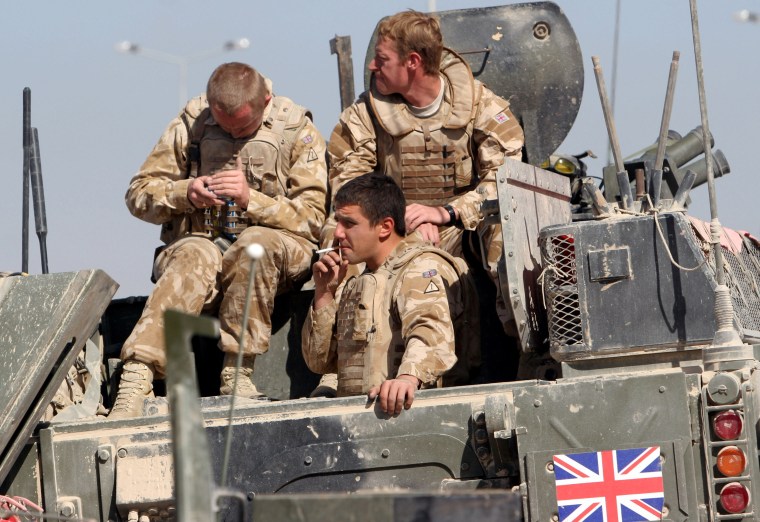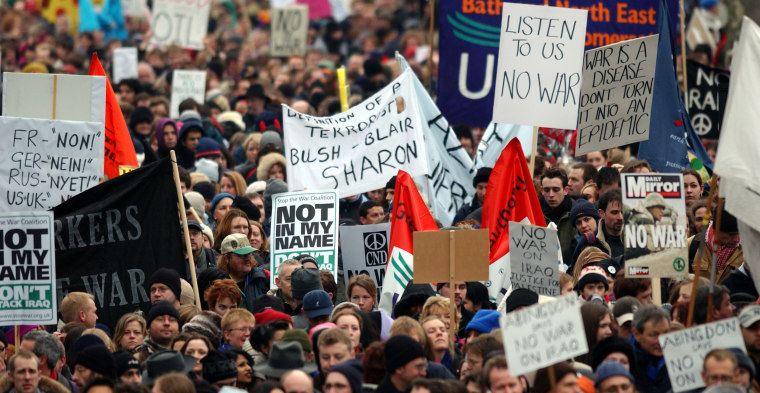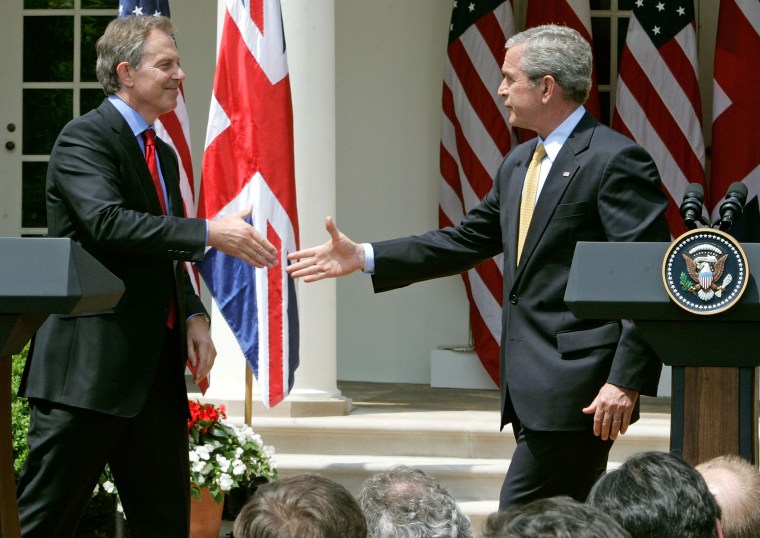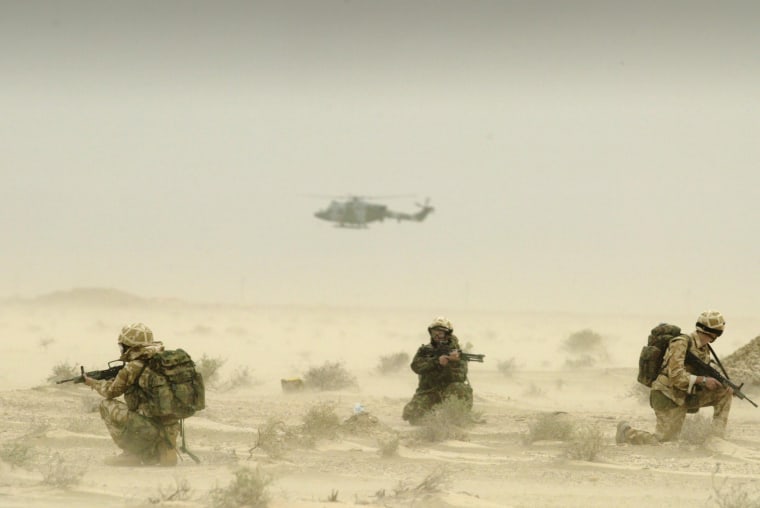LONDON — It's been seven years and millions of dollars in the making, but the colossal report on Britain's role in the Iraq war will finally be published Wednesday.
The wait for the results of the the Iraq Inquiry have left former Prime Minister Tony Blair in the hot seat amid longstanding allegations he lied in making the case for the U.S.-led 2003 invasion.
How hard the "Chilcot" Report — an homage to the inquiry's chair Sir John Chilcot — comes down on Blair will be closely watched in a country grappling with anti-establishment anger and political uncertainty.
Here's what you need to know about the 2.6-million word behemoth due for release.
How big is the report?
The simple answer is: very.
The Iraq Inquiry was set up in July 2009 by Blair's successor, Gordon Brown, and was meant to take just one year to complete.

Its repeated delays have been the source of criticism from all sides. One of the inquiry's committee members died during the lengthy process.
Seven years later, it has cost the British taxpayer £10,375,000 ($13.56 million), with Chilcot, and his committee members being paid between $750 and $1,000 every day.
Even for the most avid bookworm, reading the whole thing will present something of a challenge. The 12-volume report will run for a staggering 2.6 million words — around 33 times longer than the first "Harry Potter" novel and almost 4 ½ times longer than Leo Tolstoy's Russian epic "War and Peace."
Anyone can order a copy — though it will cost £767 (around $1,000). An executive summary — itself some 300 pages — is available for £30 ($40).
What will it look at?
The Iraq Inquiry was commissioned to examine "the way decisions were made and actions taken" before and during the Iraq war, as well as "to establish as accurately and reliably as possible what happened, and to identify lessons that can be learned."
In addition to nearly 4,500 Americans and countless Iraqis, the Iraq war cost the lives of 179 British servicemen and women. Many current U.K. politicians now openly say entering the war was a mistake.

Although Britain's combat role lasted from 2003 to 2009, the report will cover the period from the summer of 2001.
It is expected to analyze the much-criticized intelligence used to make the case for war, how the invasion was carried out, and what plans there were to rebuild Iraq following the conflict.
A key question will be Blair's legal basis for entering the war.
How bad could it be for Blair?
In 1997, the former Labour leader was elected prime minister by a landslide after 18 years of Conservative rule. Seen at the time as the savior for progressives, he led the country for 10 years.
The case he made around the Iraq war, though, has for many tarnished Blair's reputation.
That's because Blair at the time claimed Saddam Hussein had weapons of mass destruction that the dictator could use in 45 minutes. Weapons inspectors say that despite inspecting hundreds of sites, no evidence to support such a claim was ever found — and Blair critics claim the prime minister intentionally misled the public, allegations he has repeatedly denied.

"In the case of Iraq, some people maintain the war was legal," former U.N. weapons inspector Hans Blix told the Iraq Inquiry in July 2010. "I am of the firm view that it was an illegal war. I think the vast majority of international lawyers feel that way."
Blair told the Iraq Inquiry in January 2010 that intelligence at his disposal had indicated "beyond doubt" that Saddam had weapons of mass destruction — and that he did not regret the decision to invade.
The Iraq Inquiry points out it is “not a court of law” but says if there were issues that “could have been dealt with better” it will point them out.
However, some commentators and lawmakers have suggested legal action could be taken against Blair in wake of the report's publication.
"I think it was an illegal war — I'm confident about that," Labour's own current leader, Jeremy Corbyn, told the BBC last year. "Is [Blair] going to be tried for it? I don't know. Could he be tried for it? Possibly."
According to a report in The Guardian on Sunday, several British lawmakers are considering using an ancient law to try to impeach Blair after the Iraq Inquiry is published.
The lawmakers, led by former Scottish National Party leader Alex Salmond, want to use legislation that hasn't been deployed since 1806, according to the newspaper, although it is not clear how credible this challenge would be.

Regardless of whether Blair is prosecuted, the report is expected to be used as fodder by some in the British political establishment.
The U.K. is embroiled in political crisis following its referendum to leave the European Union. That vote — known as Brexit — prompted the resignation of current Prime Minister David Cameron, who lobbied to stay in the EU, along with one of its most vocal supporters.
Corbyn, meanwhile, is facing an open revolt from his lawmakers.
What about George W. Bush?
Wednesday's report isn't just about British politicians and Blair, though.
The Iraq Inquiry also will publish records from more than 130 conversations between Blair and George W. Bush, according to Reuters.
However, the inquiry has previously said it will not seek to use material that reflects Bush's views.
Blair's critics claim he was too cozy with the Bush in the run-up to the war, with newspaper cartoons at the time depicting the British leader as a lapdog to the president.
The Anglo-American alliance formed the central pillar of the invasion. Kofi Annan, the former U.N. secretary general, said in 2004 that he believed the Iraq war was illegal and France, Germany and Russia all withheld their support.

